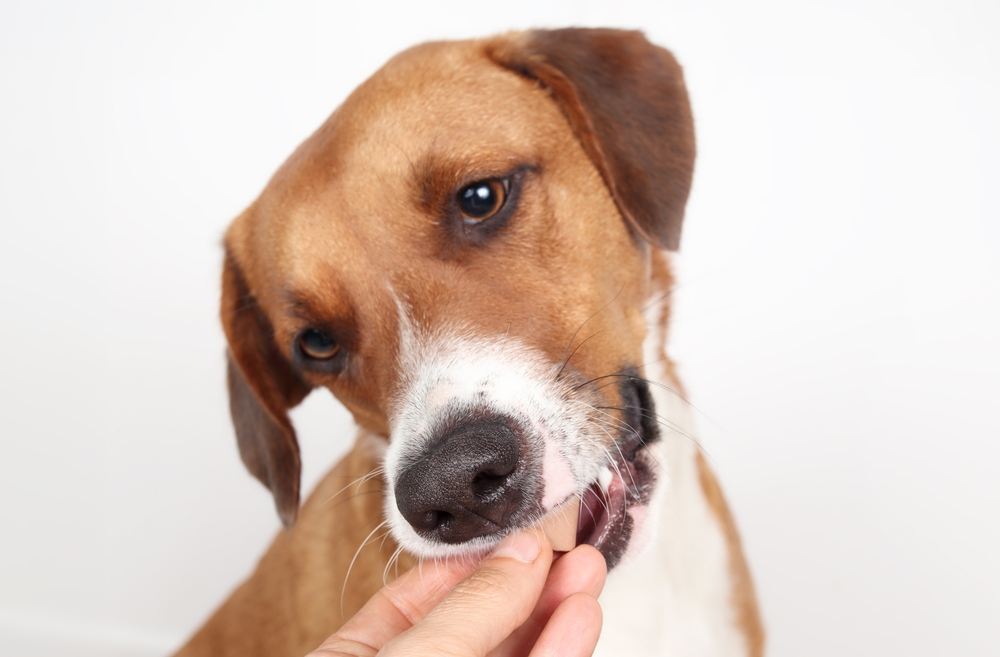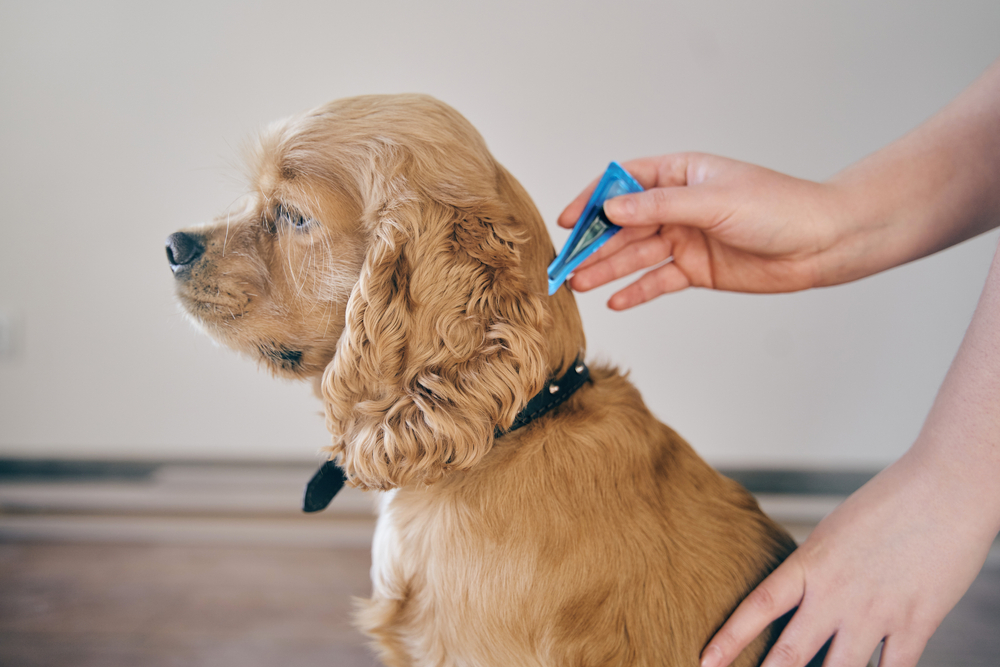Last Updated on August 12, 2024 by Dog Lover
Puppy Deworming Schedule
Puppies are more vulnerable to parasites, requiring frequent deworming. Under six months, a distinct schedule is necessary. Once over six months, puppies transition to adult schedules.
Puppy Deworming Timeline:
- 2 weeks: Dewormer
- 4 weeks: Dewormer
- 6 weeks: Dewormer
- 8 weeks: Dewormer and first vaccination
- 10 weeks: Dewormer
- 3 months: Dewormer and second vaccination
- 4 months: Dewormer and third vaccination
- 5 months: Dewormer
- 6 months: Dewormer

Product Recommendations for Puppies:
Consult your veterinarian for the best products to use for deworming. Always ensure the products are age-appropriate. Options for flea, tick, and heartworm prevention include:
- NexGard PLUS Chew for Dogs
- Simparica Trio Chewable Tablet for Dogs
- Drontal Plus Tablet for Small Dogs & Puppies
- Revolution Topical Solution for Kittens & Puppies
- PetArmor Sure Shot 2X Dewormer for Hookworms & Roundworms for Dogs
Adult Dog Deworming Schedules
Two main schedules exist for adult dogs, primarily based on heartworm prevention methods.

Yearly Heartworm Preventative Schedule
This schedule begins with a Proheart injection, which guards against heartworm for up to 12 months. Other intestinal dewormers are still necessary every three months. Below is a sample schedule:
Deworming Schedule with Proheart 12 (January Start):
- January: Proheart 12 and intestinal dewormer
- April, July, October: Intestinal dewormer
Recommended Products:
- Elanco Quad Dewormer for Large Breed Dogs
- Drontal Plus Chewable Tablet for Large Dogs
- PetArmor 7 Way Dewormer for Medium & Large Breed Dogs
- Virbantel Chewable Flavored Tablets for Medium & Large Dogs
Monthly Heartworm Preventative Schedule
If using a monthly heartworm tablet, also administer a dewormer monthly. Keep exact dates for administration.
Monthly Deworming Schedule:
- 1st January: Monthly all-wormer
- 1st February: Monthly all-wormer
- 1st March: Monthly all-wormer (continue through year)
Product Options:
Products may also include external parasite prevention, but be mindful of gaps in coverage, like tapeworms:
- Simparica Trio Chewable Tablet for Dogs
- NexGard PLUS Chew for Dogs
- Interceptor Plus Chew for Dogs
- Heartgard Plus Chew for Dogs

Types of Worms in Dogs
Understanding the variety of worms is crucial since not all products cover every type.
- Heartworm: Transmitted via mosquitoes, these worms inhabit major blood vessels and can be fatal.
- Hookworm: Small worms attach to the intestines, causing anemia. Transmission is through feces or nursing.
- Roundworm: Commonly spread through feces or maternal transmission, causing diarrhea and bloating.
- Tapeworm: Acquired from fleas or intermediate hosts, releasing eggs visible in feces.
- Whipworm: Live in the large intestine and spread through feces, causing digestive upset in large numbers.
Final Thoughts
Choosing the correct deworming schedule for your dog depends on various factors. Many products also tackle external parasites like fleas and ticks, offering convenience.
Check product labels for parasite coverage and administration frequency. Veterinary guidance ensures comprehensive parasite protection without redundancy.























